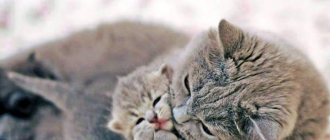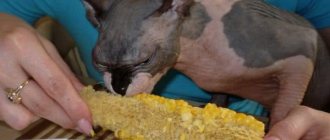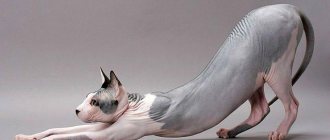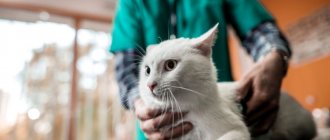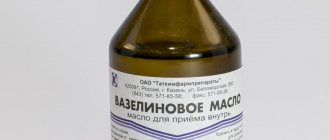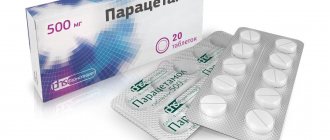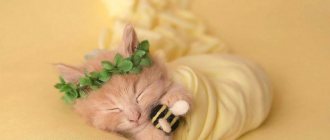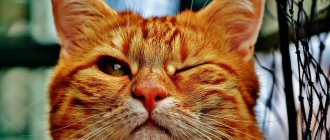Cats, along with dogs, are the most common pets. They, like any predators, have certain physiological needs; their body needs the amino acid arginine, which is found only in proteins of animal origin. Thus, a cat’s diet should consist of protein food at least 80%. However, a cat’s diet must include cereals, cottage cheese and kefir, vegetables and fats.
Fats of plant and animal origin can be classified as individual pet food groups. It is important to know that cat food should contain more fat than dog food, but less than human food.
The body of cats, especially at a young age, perfectly digests and absorbs fats, and kittens that receive a sufficient amount of fats grow and develop much faster. Cats need to be given both animal and vegetable fats.
Vegetable fats that are beneficial for cats include:
- Sunflower oil.
- Olive oil.
- Mustard oil.
- Linseed oil.
- Hemp oil.
Animal fats that are beneficial for cats are:
- Beef fat.
- Butter.
- Fermented milk fats.
- Fish fat.
Symptoms of constipation
Normally, a domestic cat defecates daily, usually at about the same time. However, some animals have bowel movements less frequently; this varies from person to person. Loving and caring owners always pay attention to the condition of the cat's litter box in order to promptly clean up after their pet.
If the second day has passed and there is no bowel movement, this is a reason to watch the cat.
In cases where the intestines do not empty, the feces lose water, become hard, and cause significant discomfort to the animal. In addition, excrement is something that the body does not need, it eliminates it, and if bowel movements do not occur, toxins from stagnant feces begin to spread throughout the body.
Constipation can be recognized by the following symptoms:
- the tray is clean for more than two days;
- a cat can dig around for a long time, sit down in the tray, sit for a long time, but without results;
- it is noticeable that the animal is tense, straining, and sometimes makes plaintive sounds;
- The cat sometimes does not go to the litter box, tries to sit somewhere in the corner, but does not leave excrement.
Sometimes, if the cause of constipation is a pathological process, the cat may have additional symptoms. The animal may vomit and vomit; it meows pitifully, trying to communicate unpleasant symptoms and pain. The cat becomes lethargic and inactive. The temperature may rise, the stomach becomes tense, and it is impossible to touch it (cats, even under normal conditions, do not really like touching the stomach, but when sick they can react aggressively to attempts to touch it).
A small amount of stool containing blood or mucus may appear. Sometimes only mucus or blood comes out of the anus. This is a serious symptom that requires immediate contact with a veterinarian.
For chickens
The properties of flaxseed help domestic chickens and roosters to normalize not only the functioning of the digestive system, but also improve the external condition of the integument. Chickens do not eat flaxseed in its dry form, so it is given steamed along with soft food.
Chickens that start or stop laying eggs must be given this supplement. During molting, chickens receive flax seed in order to speed up this process and improve the condition of their plumage.
Plant sources of fats in the form of flax seeds, obtained by chickens, help improve the fatty acid composition of the yolks of laid eggs. This improves their dietary properties several times without increasing the level of cholesterol in the composition. To improve the productivity of poultry and its physiological condition, you must adhere to the following instructions:
- When molting, chickens should receive 3-4 grains daily.
- Laying hens should consume 2.5% flaxseed as part of the basic feed daily.
Possible causes of constipation in cats
The likelihood of developing constipation increases with age: all processes, including intestinal peristalsis, begin to proceed more slowly, and an older animal may begin to have problems with defecation.
In addition, according to veterinary statistics, cats suffer from constipation more often than cats.
The most common causes of constipation are:
- poor nutrition (monotonous food, food from the human table, fasting);
- blockage of the intestinal lumen by a foreign object (most often this is a large lump of swallowed hair, less often - any foreign objects accidentally eaten by the cat and cannot be digested);
- physical inactivity (intestinal motility may be impaired as a result of the cat’s lack of activity and mobility);
- inflammatory diseases of the intestinal tract;
- hypertrophy of the large intestine (megacolon);
- parasitic infestation, large accumulation of worms;
- scars, polyps, neoplasms, inflammatory processes in the rectum;
- oncological diseases;
- pathological processes in the liver, kidneys;
- neurological, psychological or orthopedic problems.
Is it possible to worm a nursing cat?
Your cat recently gave birth and is now actively nursing kittens. Everything is fine, but it turns out that the pet has worms. What to do and is it possible to worm a cat nursing kittens? It’s worth starting right away with the main thing - pets who have recently given birth should absolutely not undergo antiparasitic treatment. You need to wait at least a month after giving birth, and ideally six weeks. And then, this should be done only if the number of parasites in the animal’s body directly affects the cat’s health.
But even in this case, do not rush to remove worms from a nursing cat. It would be better if you consult a veterinarian about this issue first.
Video
When is a laxative necessary?
Having identified symptoms of constipation in a cat, you should not immediately give it laxatives, be it traditional or medicinal. Sometimes this is absolutely not worth doing.
Sometimes the absence of bowel movements is explained by psychological problems or stress. In such cases, laxatives are not needed. The animal must be calmed and a comfortable environment created.
In difficult cases, your pet should be examined by a veterinarian and undergo a course of treatment with antidepressants.
The cat may not accept the tray, the place where it is, or may not tolerate the filler for some reason. In such cases, the reason for the lack of defecation is also in a stressful state, and the animal needs help: change the type of litter, rearrange the tray, sometimes even buy another toilet.
If the cause of constipation is nutritional problems (prolonged fasting, switching to another food, inappropriate food), then the pet needs a diet.
You should consult your veterinarian on what to feed your cat. In such cases, folk remedies can be used for relief.
Medicines should not be given without a doctor’s prescription, especially if they are intended for humans. In some cases, you can use medications, for example, if the animal has undergone castration or sterilization surgery, the veterinarian will tell you about the appropriate ones.
If the cat does not go to the toilet for more than three days and experiences noticeable discomfort, it can also be helped with medication.
In other cases, if blood or mucous inclusions are found in the pet’s stool, then no medications should be given. There is also no need to give a laxative if constipation is caused by intestinal obstruction due to a foreign body.
In such cases, you can do an enema; this method will help to quickly cleanse the rectum and slightly alleviate the cat’s condition. However, you need to show the animal to a doctor as soon as possible.
Also read the article about what to do if a cat cannot go to the toilet in a big way.
Is it possible to clean a cat's ears with hydrogen peroxide?
In order for the cat to remain healthy and active, have a strong immune system and not be bothered by various diseases, it is very important that the owners take sufficient care of it. Particular attention should be paid to cleaning your pet’s ears, since hearing impairment is critical for cats. If you do not clean your cat's ears in a timely manner, the wax plug can put pressure on the ear plug and the animal's hearing can be significantly reduced. Can I clean my pet's ears with hydrogen peroxide?
Oxygen peroxide is believed to soften ear plugs, making ears easier to clean. However, do not forget that the solution dries the skin, so if the cat’s ears need to be cleaned only for hygienic purposes, then it is best to use regular saline solution, since dryness in the ear canals can provoke the production of wax. A cotton swab is soaked in a saline solution and the inner ear canals of the cat's ears are gently wiped. You can also use chamomile decoction or regular boiled water instead.
You can also purchase solutions specifically designed for cleaning pets’ ears at veterinary pharmacies.
Hydrogen peroxide can be harmful to the skin inside your cat's ear. Due to the fact that delicate skin dries out, it is more susceptible to cracks, which in turn can cause wounds and ulcers.
Types of laxatives for cats
Laxatives differ in their principle of action. There are the following types of such funds.
Osmotic
These are drugs whose principle of action is to attract fluid from cellular structures. Due to this effect, the volume of feces in the intestines increases, they soften, pressure on the walls increases, and as a result, the urge to defecate becomes stronger and more productive.
The group of osmotic laxatives includes lactulose-based drugs. Duphalac and Lactusan are highly effective. In addition to its laxative effect, lactulose promotes the proliferation of beneficial intestinal microflora and suppresses the activity of pathogenic microorganisms.
Mechanism of action
Vaseline oil is a clear liquid without a strong taste or smell. It is formed during the purification of hydrocarbons that remain after the production of kerosene.
The raw materials for the production of petroleum jelly undergo careful filtration. It is cleared of impurities. That is why the substance resembles water in its transparency. This drug has another name - liquid paraffin (named after the main active ingredient).
For several decades, this medicine has been actively used in veterinary medicine as a means of relieving constipation.
Vaseline oil is completely safe for cats. It does not penetrate the walls of the stomach and intestines and does not cause allergies. The substance leaves the cat's body unchanged. Thanks to all these properties, Vaseline oil can be used for kittens and adults.
Once in the animal’s body, the drug envelops the intestinal walls and penetrates into the feces. Under its influence, feces soften and become slippery. This way they leave the body easier and faster.
In addition to the laxative effect, petrolatum oil enhances intestinal motility and helps normalize stool.
Mr. Cat Recommends: Effective Home Remedies
In case of constipation, there is no need to immediately stuff your animal with medications. Sometimes they are necessary, but most often you can get by with effective and safe folk remedies.
Here are some good recipes:
- Condensed milk. Condensed milk is mixed with clean water in a ratio of 1:3, and given to the cat in small quantities (no more than a tablespoon) several times a day. The time interval between laxative doses should be at least three hours, and in total the laxative should be given no more than five times a day. Diabetes mellitus is a contraindication to the use of this method.
- Vegetable oils (coke, linseed, olive). A few drops of oil should be added to the animal's food. You can’t overdo it; you should give no more than a quarter of a teaspoon. This method can only be used in extreme cases, when no other laxatives are available. Vegetable oils have a negative effect on the cat’s liver and can cause discomfort and negative reactions from the intestines. Veterinarians do not recommend using oils as a laxative. Only adult animals can be treated in this way.
- Vaseline oil, castor oil. These agents help move stool through the intestines. Vaseline or castor oil should be given to your cat using a special syringe. It is best to discuss dosages with your veterinarian. The optimal dose is calculated based on the weight of the animal (about 1.5 ml per kilogram of weight). After taking such a laxative, it is necessary to limit the cat's food intake. It is advisable not to give anything before bowel movement. Usually, defecation occurs after 3-5 hours. If there is no effect during this time, you need to repeat taking the product.
- Milk. For cats, the whole product has a laxative effect. Warm milk is given in small quantities, several times a day. You cannot overdo it with this remedy, as an overdose can cause severe diarrhea.
- Freshly squeezed vegetable juices and raw vegetables. As a laxative, you can give your pet a few pieces of beets, pumpkin or carrots, as well as juice from these vegetables.
If there are plants in the house, or the cat walks outside, then, following instinct, it can pick up a laxative for itself. Plants with a laxative effect:
- cat mint;
- Melissa;
- rhubarb leaves;
- aloe;
- pharmaceutical camomile;
- buckthorn;
- cucumber leaves;
- centaury.
You can prepare a decoction from these plants and give your cat water several times a day. It is better to make it one-component, taking a tablespoon of any herb per glass of boiling water. After standing, cooling and straining the product, it should be given to the animal 1-2 teaspoons every 3-4 hours.
In addition to oral remedies, there are other methods to combat constipation. The most effective and fastest way to alleviate a cat’s condition is a cleansing enema.
It is advisable that the procedure be performed by a veterinarian or nurse.
If the owner has some experience, he can give his pet an enema himself. To carry out the procedure, take warm water or chamomile decoction. It is necessary to monitor the temperature of the liquid so as not to cause pain or discomfort to the cat.
Another way to stimulate intestinal peristalsis so that it is freed from feces is abdominal massage. Only the owner can do it, since cats really do not like touching the most vulnerable part of the body from their point of view. You should calm the cat down, and then slowly stroke it, without pressing too hard, in a clockwise circular motion. The massage procedure is carried out after taking a laxative.
For cattle
The health of an animal directly depends on its nutrition. Flaxseed oil, included in a nutritious diet, allows cows and other artiodactyls to improve the secretory-motor function of the intestines and strengthen the immune system.
The protein contained in the oil and dietary plant fibers are of great value for livestock. They are able to influence the mechanisms regulating the sexual cycle and reproductive processes in animals. Their role in normalizing the functioning of the cardiovascular system is high.
Fattening young animals, which receive this product with their main food, quickly gain weight and height. The high content of vitamins and unsaturated fatty acids helps improve the quality of milk. Dairy cows, thanks to flax oil, produce milk with an improved fat profile.
It is also indispensable in the treatment of cow diseases. Lice in cows is treated by rubbing a mixture of flax oil and kerosene in equal proportions. In severe forms of mastitis in cows, flaxseed oil is used as a rub for inflamed areas of the udder.
Instructions for use:
For dairy cows, up to 4 kg of flax cake and up to 7% of flax seed from the total volume of feed are added to the feed per day. Cows are given 200-600 ml of flaxseed oil along with feed 2-3 times a week.
Calves up to 10 months of age receive, along with food, 50-80 g of flaxseed oil or 500 g of flaxseed cake once a day for a 1.5 month course.
Helping a kitten with constipation
The baby's intestinal tract does not yet function very efficiently, so the possibility of constipation cannot be ruled out, especially with changes in diet. To determine the cause of constipation, the kitten should be taken to a veterinarian.
It is strictly prohibited to give your baby medications without a doctor’s prescription.
If your kitten is constipated, you need to give him plenty of water. If he refuses, then you can pour in water in small portions using a special syringe. As a laxative, you can give condensed milk diluted with water; the baby most likely will not refuse the treat. You can also give him some Vaseline oil. Massaging the tummy helps a lot.
Contraindications and side effects
Vaseline oil is a fairly popular remedy for treating constipation in cats. However, there are a number of contraindications to its use. Therefore, it is recommended to consult a veterinarian first.
Contraindications to the use of petroleum jelly:
- chronic constipation;
- elevated temperature;
- pregnancy;
- gastrointestinal ulcers;
- individual intolerance to the drug;
- infectious diseases;
- blockage of the intestine by a foreign body with sharp edges or a tumor;
- various gastrointestinal pathologies;
- deworming carried out the day before;
- intestinal bleeding.
If the dosage is violated or the duration of administration is increased, the cat may develop side effects:
- diarrhea;
- nausea and vomiting;
- itching and irritation in the anal area;
- spontaneous release of feces due to decreased muscle tone of the intestines;
- exhaustion and hair loss from impaired absorption of vitamins and nutrients.
It is important! Some time after ingestion, petrolatum oil will begin to be released from the anus. It will contaminate the fur under the tail, so owners will have to wipe it off quite often with a cotton pad or bandage.
Preventing constipation in cats
To prevent constipation in your pet, you should follow these recommendations:
- cats, especially those with long, thick hair, should be brushed regularly (during the period of fur renewal, it is better to do the procedure daily);
- long-haired and very clean cats who carefully care for their coats must be given special pastes that dissolve and remove hair from the gastrointestinal tract;
- The cat should always have free access to clean water (the water should be changed frequently, since the animal will not drink stagnant liquid);
- the cat needs to be provided with a varied and proper diet, and not fed with inappropriate food;
- cats prone to laziness must be regularly involved in games and interesting activities to prevent physical inactivity;
- In order to prevent the cat from swallowing small objects, you should carry out regular cleaning and do not leave children's toys with small parts, handicrafts and other things that may interest the animal in the cat's access area.
Once a year, the cat must be taken to the veterinarian for a medical examination. This will help to promptly identify emerging diseases and, if necessary, begin treatment.
Natural cat food: recipes
Preparing homemade food will take time, but the owner can be confident in the result, since it will not contain preservatives, dyes or harmful additives.
How to prepare dry cat food: 3 recipes
Recipe No. 1.
Ingredients:
- 1 kg turkey hearts;
- 1 kg chicken stomachs;
- 300 g chicken liver;
- 4 things. chicken necks;
- 2 chicken eggs;
- 100g carrots;
- 200g zucchini;
- 100g beets;
- 200g rice;
- 3 tbsp. spoons of vegetable oil.
Be sure to read:
The best cat foods according to veterinarians for 2020
Cooking algorithm:
- Boil cereals and hard vegetables.
- Boil the meat.
- Grind everything in a meat grinder or chop using a blender.
- Place on a baking sheet lined with foil.
- Place in the oven at 100°C for an hour and a half.
The food should not be baked, so you need to make sure that the temperature in the oven does not rise above 100°C.
Recipe No. 2 is prepared in the same way, but the components are different:
- 1 kg of beef or chicken;
- a glass of oatmeal;
- boiled chicken egg - 1 pc.
Recipe No. 3
- chicken or beef heart - 1 kg;
- a bunch of parsley or dill;
- 1 tbsp. l. olive or flaxseed oil.
Finely chop all ingredients and mix.
You can prepare several options and alternate them so that your cat’s diet is more varied.
Homemade natural dishes: 7 recipes
Recipes for homemade natural food are varied. You can prepare both a fish menu and a meat menu, depending on the cat’s preferences.
Salmon with rice.
- steam 150 g salmon;
- half a hard-boiled egg;
- a third of a glass of boiled rice;
- calcium carbonate tablet;
- vitamin-mineral complex tablet.
Mix everything and serve.
Chicken with rice and vegetables
- 2 cups chopped chicken meat;
- a glass of cooked brown rice;
- a quarter cup of boiled and grated carrots.
Mix chicken with rice and carrots and heat slightly.
Food for capricious pets
- a glass of boiled chicken;
- ¼ tbsp. steamed asparagus cabbage;
- the same amount of grated carrots;
- half a cup of chicken broth.
Mix everything, warm it up a little and serve.
Liver and kidneys
- a glass of boiled offal;
- ¾ tbsp. boiled oatmeal;
- a quarter cup of carrots;
- a third of a glass of natural yogurt;
- 3 tbsp. l. butter.
Mix minced liver and kidneys with oatmeal and vegetables. Melt the butter and pour it into the mixture. Add yogurt. Serve at room temperature.
Chicken with broccoli
- half a chicken breast;
- 2 pieces of broccoli.
Be sure to read:
Taurine for cats: what is it, what is it for, how much is needed, where is it contained, benefits and harms
Boil everything and mix until smooth.
Meat with cottage cheese
- 100 beef;
- 1 tbsp. l carrots;
- 1 tbsp. spoon of cottage cheese;
- 1 tbsp. l vegetable oil.
As in previous recipes, mix everything and you can give it to your cat.
Chicken with potatoes
- 100 g boiled chicken without skin;
- a quarter cup of mashed potatoes;
- half a teaspoon of butter.
Serve at room temperature.
These are healthy food recipes that will help provide your cat with all the vitamins and nutrients.
Food for sterilized cats and neutered cats
Sterilized cats and neutered cats have some nutritional characteristics that are always taken into account when making industrial food. This group of pets is prone to obesity. This means that the fat content in homemade pet food should be reduced.
Sterilized pets are prone to urolithiasis, so it is necessary to add components to the homemade food that facilitate the complete removal of fluid from the body. It is optimal for prevention to increase the amount of protein, since it acidifies the urine and prevents the formation of stones.
Vegetable oils in a cat's diet
Vegetable oils are the richest source of vitamin E, which is beneficial for coat and claws, as well as for the reproductive and genitourinary systems. Vegetable oils are given to a cat, starting with a couple of drops and gradually increasing to the norm, at the rate of 1.5 grams per 1 kilogram of the animal’s weight. They are best mixed with vegetables, but in no case with dairy products.
Vegetable oils that can be given to a cat:
- unrefined sunflower;
- olive;
- mustard;
- linen;
- hemp.
When preparing food, you should avoid adding exotic oils - coconut, avocado, grape seed. Any exotic oil can cause allergies and diarrhea in a cat.
